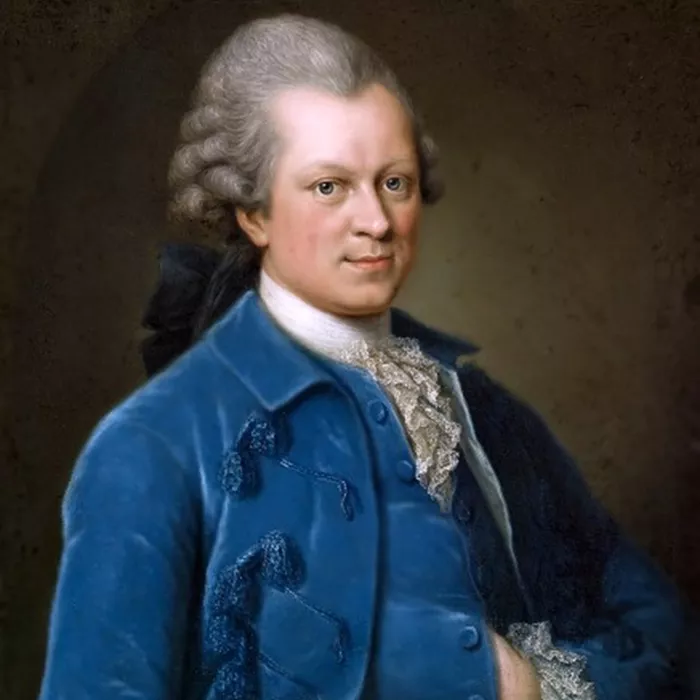
Gotthold Ephraim Lessing (1729–1781) was a German Enlightenment thinker, poet, playwright, and critic. Revered for his intellectual depth and literary versatility, Lessing championed rational thought, religious tolerance, and artistic freedom. A pioneer of modern German literature, his works spanned drama, philosophy, and poetry, leaving an indelible mark on Western thought and culture.
Gotthold Ephraim Lessing Biography
Born on January 22, 1729, in Kamenz, Saxony, Gotthold Ephraim Lessing was the eldest son of a Lutheran pastor. His upbringing in a devout household instilled a lifelong interest in theology and philosophy. After receiving an education at the St. Afra School in Meissen, he pursued studies at the University of Leipzig, focusing on theology, philosophy, and medicine. It was during this time that Lessing developed a passion for literature and drama.
Lessing’s early career saw him as a freelance writer and critic in Berlin, where he mingled with intellectual circles and contributed to periodicals. He published Miss Sara Sampson (1755), one of the first German bourgeois tragedies, breaking away from aristocratic themes. This marked his commitment to portraying real human struggles, a theme that would permeate much of his work.
In 1767, Lessing became the dramaturg at the Hamburg National Theatre, where he penned the influential Hamburg Dramaturgy. This series of essays reshaped German theater, emphasizing emotional authenticity and critiquing classical drama’s rigidity. His masterpiece Nathan the Wise (1779) championed religious tolerance and rational dialogue, embodying Enlightenment ideals.
Lessing’s work extended beyond literature. As a philosopher, he grappled with questions of theology and metaphysics. His treatise The Education of the Human Race (1780) posited that humanity’s moral and spiritual evolution mirrored an educational process.
Despite professional successes, Lessing faced financial hardships and personal losses, including the death of his wife, Eva König, in 1778. He died on February 15, 1781, in Braunschweig. His legacy as a leading figure of the Enlightenment endures through his profound influence on German literature, theater, and philosophy.
Gotthold Ephraim Lessing Poems
Although primarily known for his dramas and critical essays, Lessining’s poetic contributions reflect his intellectual rigor and lyrical prowess. His poetry often inftertwined philosophica musings with classical influences, offering a glimpse into hiscontemplative mind
1. “Die Freundschaft” (Friendship) – A meditation on the endurirng nature of true friendship, this poem exalts loyalty and emotional depth.
2. “An Minna” – A heartfelt love poem that expresses romantic longing with eloquence and tenderness.
3. “Die Geduld” (Patience) – A didactic work emphasizing the virttue of perseverance in the face of adversity.
4. “Das Glück” (Happiness) – A philosophical exploration of happiness, advocating for inner contentment over material wealth.
5. “Der Abschied” (The Farewell) – A poignant poem about parting and the bittersweet nature of goodbyes.
Lessing’s poetry, though lesser-known compared to his plays, demeonstrates his mastery of language and his ability to convey complex ideas succinctly.
Gotthold Ephraim Lessing Quotes
1. “The search for truth is more precious than its possession.”
2. “A heretic is a man who sees with his own eyes.”
3. “For me, the greatest art is that which satisfies the soul.”
4. “Think wrongly, if you please, but in all cases think for yourseIf”
5. “The passions are the winds that fill the ship’s sails; without them, it would not move.”
6. “Love is nothing but the desire to make someone else happy.”
7. “The worth of a man lies in how he values himselif”
8. “If God were to hold all truth in one hand and the eternal search for it in the other, I would choose the search.”
9. “The stage should speak to the heart, not just the mind.”
10. “Books are like mirrors: if a fool looks in, you cannot expecta genius to look out.
Gotthold Ephraim Lessing Facts
1. He is considered the father of modern German dramna.
2. Lessing’s Nathan the Wise introduced the “ring parable,” symbollizing religious tolerance.
3. He was one of the first to critique Aristotle’s concept of tragedy in drama.
4. His friendship with philosopher Moses Mendelssohn influeenced his views on religious pluralism.
5. He worked as a librarian in Wolfenbüttel, where he discoveered and published ancient manuscripts.
6. Lessing’s marriage lasted only a few years due to his wife’suntimely death.
7. He was an avid chess player and wrote about the game inhis leisure time.
8. His critical works laid the foundation for modern literary criticism
9. Lessing was a strong advocate for the separation of churchand state
10. His unfinished play The Jews addressed anti-Semitism, a rrare topic in his era.
